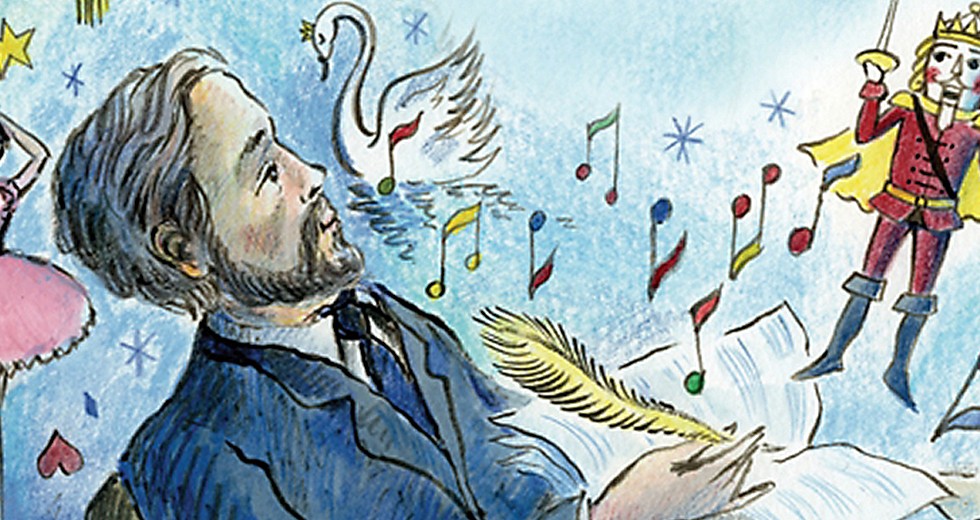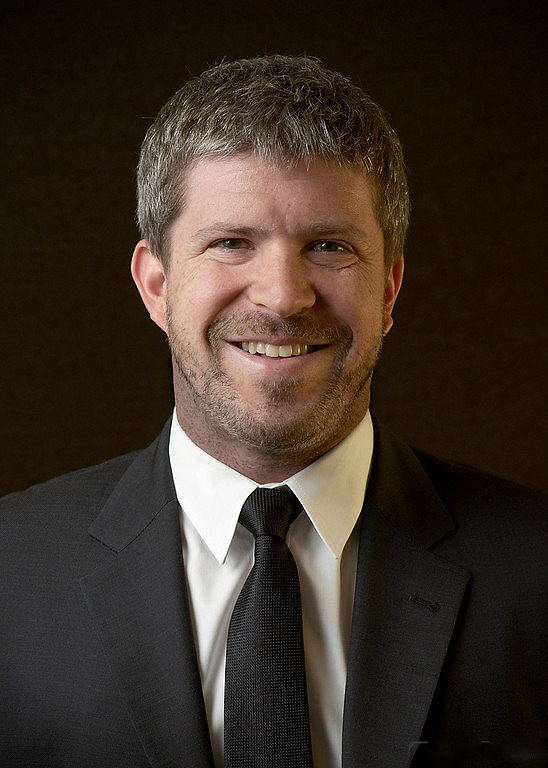
The music of Pyotr Ilyich Tchaikovsky is a natural choice for a concert designed to show children how well music expresses emotion, according to conductor Edwin Outwater.
“As a composer, Tchaikovsky wore his heart on his sleeve,” says Outwater, the music director of the Kitchener-Waterloo Symphony in Ontario, Canada, and a frequent guest conductor for the Chicago Symphony Orchestra’s family and educational concerts. “He was overtly connected to emotions, and that’s something kids understand from the first second they hear that music.”
Outwater will lead Tchaikovsky Spectacular, a family concert with performances at 11 a.m. and 12:45 p.m. on May 2 at Symphony Center. The program will feature some familiar pieces, including selections from The Nutcracker and Romeo and Juliet. The CSO has been delving into Tchaikovsky’s oeuvre this season, especially his symphonies, and the program will sample five Tchaikovsky symphonies in all for this young audience. Presented by the CSO’s Negaunee Music Institute, the Tchaikovsky Spectacular is recommended for ages 5 and up. An hour of educational activities precedes each performance.
People talk a great deal about the importance of exposing children to classical music, but Outwater, who has won awards for his efforts with music education and community outreach, thinks if educators don’t understand music’s emotional power, they’re missing the point. “Music can change lives. That’s what happened to me,” he said. “Music opened a world of beauty and depth and inspiration. It’s important to help kids feel the intensity of how amazing this music is, in a way they can understand and feel comfortable with.”
For a Parents’ Guide to the Tchaikovsky Spectacular, please click here.
For this program, CSO members will play Tchaikovsky works that were chosen for the emotions they evoke. The music will frame a narrative of desire, attainment, loss and return to happiness, all centered on imagery of big, bright red balloons. (At one point, a beloved balloon pops. What child can’t relate to the pain of that catastrophe?)
Eight dancers from Hubbard Street 2 — four men and four women, all dressed in gray — will help tell the story the music sets out, says Terence Marling, director of HS2, Hubbard Street Dance Chicago’s company of early-career artists, ages 18 to 25. Outwater and Marling were both involved in developing the Tchaikovsky program.
“We have interactions and scenes with the balloons, and they’re integrated into the dance as well,” Marling said. “What Tchaikovsky does is very evocative. His music brings images to your mind, and that’s a wonderful thing for a choreographer.”
Our bodies convey emotion every minute we’re alive, Marling observes, and that’s actually the basis of dance. “If you look down the street and spot somebody, you might be able to guess how he feels just by the way he’s holding himself,” he said. “That becomes dance, which is as subtle as posture, or as deep as throwing yourself into movement. Dance can express a lot without words.”
So can music, of course. In the Tchaikovsky Spectacular, “they’re equal partners,” Marling said. Tchaikovsky’s music lends itself to storytelling, but “in contemporary dance, it’s rare to tell a story,” he added. Fortunately, he has been working with other large orchestral pieces lately, and anyway, Tchaikovsky’s music “is so memorable, and so huge, that it gets inside your brain, and it does so in very few listenings. It becomes part of your body” — and even your own emotions.
One goal of the creative team is to let young people know that “having feelings is OK; expressing them is OK” — even emotions like sadness or anger. “If we have a message, that’s what it is: These things are all valid,” Marling said.
Tchaikovsky had to overcome opposition to spend his life in music; his parents wanted him to be a lawyer. Outwater can relate. As a child, he “secretly spent all my time practicing and learning music.”
An English literature major at Harvard University, Outwater thinks that aspect of his education only adds another layer to his understanding of music. Some of the great composers were avid readers of literature, Outwater observes. With Romeo and Juliet, for example, Tchaikovsky “took a huge play and distilled all its emotions into a relatively short piece of music, what he called a ‘fantasy‘ — yearning, love, mystery, tragedy, star-crossed lovers,” said Outwater, who also has a master’s degree in conducting from the University of California. “The music is not a substitute, but a companion.”
Young people out in the audience might be similarly affected. “When you love something, you want to share it,” Outwater said. “It makes me so happy to see kids viscerally responding, moving, reacting.
“Music means everything to me. I have devoted my life to it, and it has changed my life. It has made me aware of the world, and it’s so beautiful, so challenging. I am so fortunate to be doing this every hour of my life.”
Delia O’Hara is a Chicago-based writer. Her short story, “Jonah,” was a runner-up in the 2013 Nelson Algren Award contest for short fiction.
TOP: A detail from the cover illustration for the Naxos release “My First Tchaikovsky Album.”
